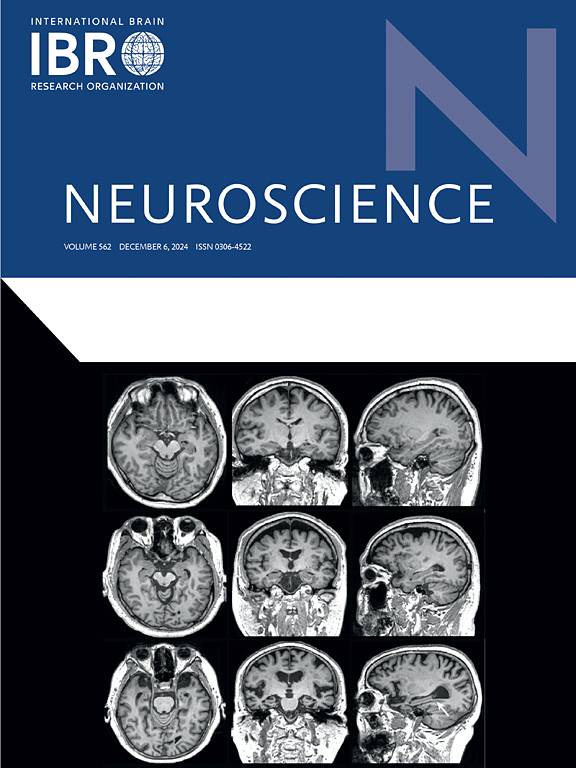Serum exosomal miR-103a-3p from patients with depression inhibits neuronal differentiation and promotes depressive behaviors in male rats
IF 2.9
3区 医学
Q2 NEUROSCIENCES
引用次数: 0
Abstract
Exosomes have been identified to be involved in the pathogenesis of depression. This study the effect of exosomes isolated from the serum of patients with major depressive disorder on neuronal differentiation and the molecular mechanism. PC12 cells were treated with nerve growth factor (NGF), and neuronal differentiation was analyzed using microscopy. Synaptophysin (SYP) and nestin levels were measured by reverse transcription-quantitative polymerase chain reaction, western blot, and immunofluorescence. The depression rat model was established with chronic unpredictable mild stress (CUMS) to assess the effect of exosomal miRNA on depression-like behaviors. The results showed that exosomes inhibited NGF-induced differentiation of PC12 cells and increased miR-103a-3p expression in PC12 cells. Similarly, miR-103a-3p inhibited PC12 cell differentiation. Brain-derived neurotrophic factor (BDNF) acted as a target of miR-103a-3p that reversed the differentiation induced by miR-103a-3p. Moreover, antagomir-103a-3p alleviates depressive symptoms in CUMS rats. In conclusion, exosomal miR-103-3p promotes the progression of depression by impeding neuronal differentiation via targeting BDNF, suggesting a promising therapeutic target for depression.

抑郁症患者血清外泌体miR-103a-3p抑制雄性大鼠神经元分化并促进抑郁行为
外泌体已被确定参与抑郁症的发病机制。研究重度抑郁症患者血清外泌体对神经元分化的影响及其分子机制。用神经生长因子(NGF)处理PC12细胞,显微镜下观察细胞分化情况。采用逆转录-定量聚合酶链反应、western blot和免疫荧光检测Synaptophysin (SYP)和nestin水平。建立慢性不可预测轻度应激(CUMS)抑郁大鼠模型,评估外泌体miRNA对抑郁样行为的影响。结果显示,外泌体抑制ngf诱导的PC12细胞分化,增加PC12细胞中miR-103a-3p的表达。同样,miR-103a-3p抑制PC12细胞分化。脑源性神经营养因子(BDNF)作为miR-103a-3p的靶标,逆转miR-103a-3p诱导的分化。此外,安他哥米-103a-3p可减轻CUMS大鼠的抑郁症状。综上所述,外泌体miR-103-3p通过靶向BDNF阻碍神经元分化来促进抑郁症的进展,提示一个有希望的治疗抑郁症的靶点。
本文章由计算机程序翻译,如有差异,请以英文原文为准。
求助全文
约1分钟内获得全文
求助全文
来源期刊

Neuroscience
医学-神经科学
CiteScore
6.20
自引率
0.00%
发文量
394
审稿时长
52 days
期刊介绍:
Neuroscience publishes papers describing the results of original research on any aspect of the scientific study of the nervous system. Any paper, however short, will be considered for publication provided that it reports significant, new and carefully confirmed findings with full experimental details.
 求助内容:
求助内容: 应助结果提醒方式:
应助结果提醒方式:


